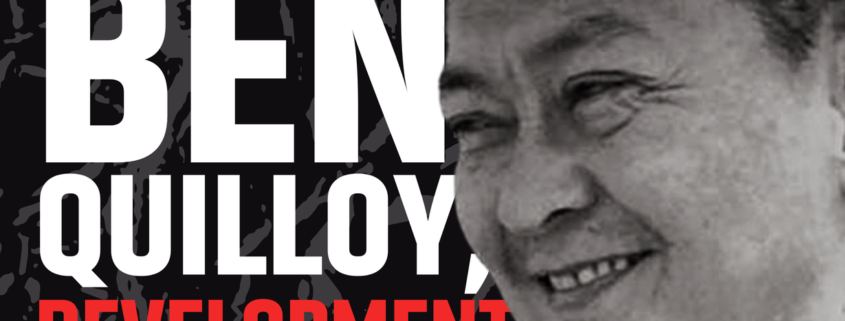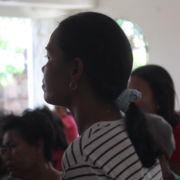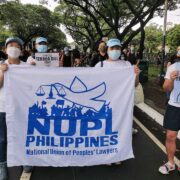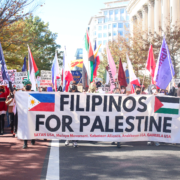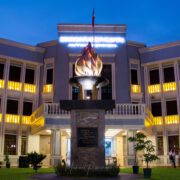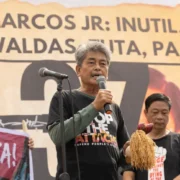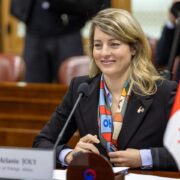Si Ineng at si Labuyo: Tala’t mga Tula
A love letter from prison
by Rosario Gonzalez
Benito Quilloy’s second book, “Si Ineng at Si Labuyo: Tala’t mga Tula,” is a timely and informative read that captures a nation’s history through a family’s story and 16 poems. Nearing 70 now, Quilloy has been languishing in jail for more than six years on trumped-up charges.
The union of two different individuals in the person of Ineng and Labuyo, Quilloy’s parents, who were constantly bickering but deeply cared for each other, takes center stage in the first piece in this book. With nine offsprings, the couple faced life’s difficulties and challenges confident that their love and strong family values of education, respect for people, hard work and honesty will steer them towards the right direction.
Ineng was only 17 when she married Labuyo, ten years her senior. It was the end of the Second World War when they had their first child. All of their nine children were delivered by the same local midwife.
Both Ineng and Labuyo were unable to finish elementary, although the latter was allowed to teach despite this. Labuyo also became a farmer, fisherman, carpenter and baker. When he got married, he engaged in business, at one time, owning three supermarkets in Los Banos. And here is where Quilloy’s knowledge of history and self-deprecating humor comes into play. He wrote how the American colonial economic policy for the Philippines led to the downfall of their business. He described how the almost reversal of their family fortune resulted in the change of their lifestyle – from a household that can afford to hire help to one that depended on their individual labor for the household to be kept running. But it was also the most critical point in their family history that strengthened their character and developed them into responsible, kind and compassionate human beings. The nine children of Labuyo and Ineng learned their most valuable lessons while growing up as the country grappled with the challenges of being a colony of the most powerful country in the world, even after having been granted its so-called independence.
Life after school and getting married for the Quilloy children was also not a walk in the park. It has melodrama written all over it, including the heart breaks and revelations. Yet humor is always present mixed with the ability to be flexible and accepting of the flaws of loved ones.
Quilloy, as the only one among the siblings who expressed a desire to be a doctor, was also resigned to the fact that their parents will not be able to finance his education. He remained their principal marketer and family cook up until he worked full-time fighting for peasants and human rights.
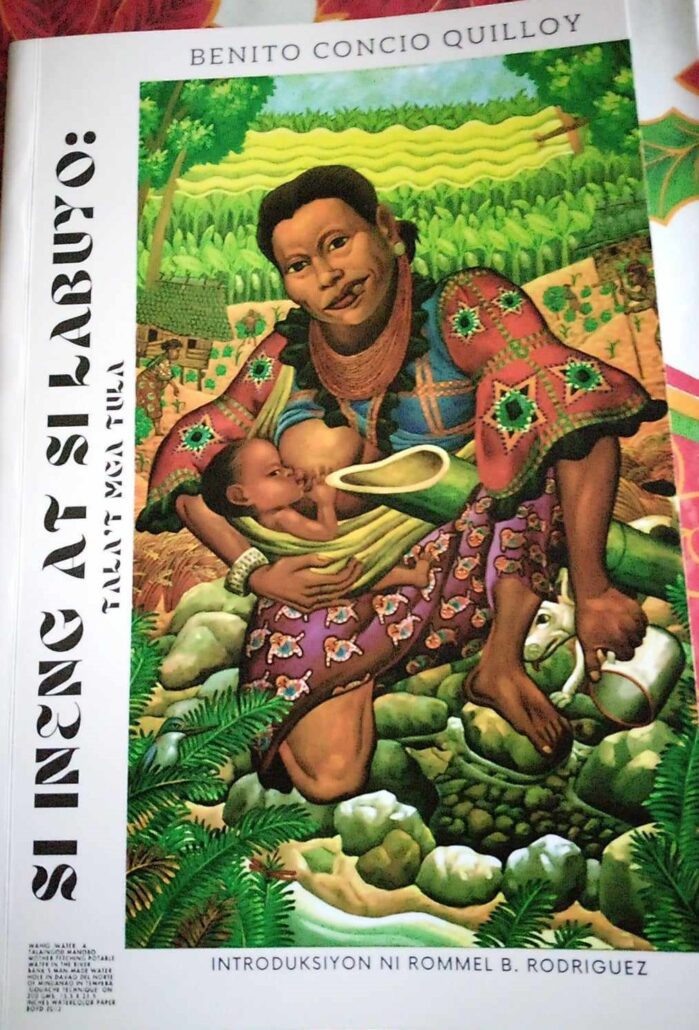
With his unjust incarceration, Quilloy was provided the chance to work on both his prose and poetry. It was poetry that initially attracted him in jail as he tried to find ways to ward off boredom, longing and loneliness. He eventually fulfilled his longtime dream to write the story of his parents as a tribute and sign of gratitude to them.
The 16 poems that are in the book, “Si Ineng at Si Labuyo: Tala’t mga Tula,” continue to speak of his love and admiration for his parents. It also tackles the following: life and art, call for real democracy, justice and peace, longing for love and life in the New Year, social transformation, fear of losing a loved one, love and intimacy, people’s struggle, tribute to health frontliners, people’s struggles and victory, and his continuing service to the people.
Quilloy is steadfast in his belief in the people’s capacity to chart their own destiny. This shows in his poems which trace a long line of adherents for social transformation as well as his own contribution which he believes is even strengthened by imprisonment. His everyday thoughts of sadness highlight his humanity, a fact that prison life can aggravate. But his optimism and political conviction does not waver.
Quilloy cannot see himself as anything but a believer for what we all aspire for — freedom, equality and genuine democracy. His mantra of service to the people remains, and the reader cannot but agree with him.
Benito Quilloy, along with another development worker, Rita Espinoza were forcibly taken by about ten elements of the Criminal and Investigation Detection Group – Philippine National Police (CIDG-PNP) in Kabankalan, Negros Occidental in October 19, 2017. They are presently detained at the Butuan City Jail in Agusan del Norte. #
= = = = =
Those interested in buying a copy of the book, priced at P350 each, may email [email protected] or message 09772882428. (Kindly identify yourself when sending a text message)

